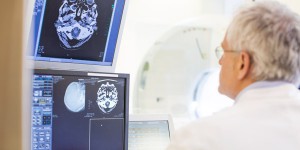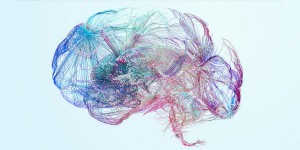By Kirsten Müller-Vahl

Dr. Kirsten R. Müller-Vahl is a Professor of Psychiatry at the Department of Psychiatry, Socialpsychiatry and Psychotherapy at the Hannover Medical School (MHH), Germany. She is a specialist in both neurology and adult psychiatry. From 1997 to 2003 she was a grant holder of the German government (Dorothea-Erxleben-Stipendium) for scientific research related to Tourette syndrome (TS). During the last 20 years she has investigated more than 1500 patients with TS (children and adults) and is the head of the Tourette-Syndrome outpatient department (since 1995). From, 2012-2016 she was the vice president of the European Society of the study of Tourette syndrome (ESSTS). She was a German representative of the COST Action BM0905 ("European Network for the Study of Gilles de la Tourette Syndrome"). She is a full partner and a working group leader in the EU funded programmes "European Multicentre Tics in Children Studies" (EMTICS) and "TS-EUROTRAIN-Interdisciplinary training network for Tourette Syndrome". She is a member of the Medical Advisory Board of the Tourette Association of America (TAA) and an author of the guidelines for the treatment of TS of both ESSTS and the American Academy of Neurology. Since 1998, she is a member and 2. Chairwoman of the Association for Cannabinoid Medicines (ACM). She was a founding member of the International Association for Cannabinoid Medicines (IACM) and from 2007-2009 1. Chairwoman and since 2015 vice president of the IACM.
Tic disorders are defined by the presence of motor and/or vocal tics. Motor tics are simple or more complex abrupt involuntary movements that can occur all over the body, but most often are located in the face and head. Vocal tics are characterized by meaningless "simple" sounds or noises, but also can be more "complex" including obscene words. Tourette syndrome (TS) is complex neurological-psychiatric disorder defined by the presence of both multiple motor and at least one vocal tic.
Tic disorders and Tourette syndrome
TS is a neurodevelopmental disorder and therefore age at onset is in childhood – most typically at age 6 to 8 years. The vast majority of patients with TS, however, suffer not only from motor and vocal tics, but also from one or more behavioral problems such as attention deficit/hyperactivity disorder (ADHD), obsessive-compulsive behavior (OCB), anxiety, depression, rage attacks, self-injurious behavior, sleeping disorder, but also leaning problems and autism spectrum disorder. Therefore, in many patients quality of life is substantially impaired.
Treatment of patients with tic disorders and Tourette syndrome
Due to the complex symptomatology and changes in clinical presentation over time, treatment of patients with TS is often challenging. Until today, tics cannot be cured. Established treatment strategies for tics include either behavioral therapy or pharmacotherapy with anti-psychotic drugs. While behavioral therapy does not cause adverse events, on average a tic improvement of only 30% can be achieved. Compared to behavioral therapy, pharmacotherapy with antipsychotics is more effective and often results in a tic reduction of about 50%. However not all patients benefit from antipsychotic medication and in many patients it is associated with relevant side effects such as sedation, weight gain, and sexual dysfunction. Patients, who suffer in addition from clinically relevant psychiatric disorders, need a combined treatment, since until today there is no therapeutic approach known that improves not only tics, but also psychiatric comorbidities. Therefore, many patients with TS are unsatisfied with available treatment strategies and seek for alternative medicine.
Against this background, new treatment strategies are urgently needed for this group of patients. Ideally, these new treatments (i) are associated with lesser side effects compared to available substances, (ii) result in a better improvement – or even a complete remission - of tics, (iii) are also effective in otherwise treatment resistant and severely affected patients, and (iv) improve not only tics, but the whole spectrum of the disease including different psychiatric symptoms such as ADHD, OCB, and depression.
Cannabis-based medication for patients with tic disorders and Tourette syndrome
Case reports
In 1988, for the first time it has been suggested that cannabis might be such an alternative treatment option for patients suffering from TS. In this report, three male patients at ages 15, 17 and 39 years were described, who experienced a reduction in motor tics and premonitory urge sensations, an improvement in self-injurious behavior tendencies, attention, and hypersexual behavior as well as a generalized feeling of relaxation when smoking cannabis. No side effects occurred and treatment effect was stable over time and did not decrease. Since this initial report, a small number of case studies has been published describing beneficial effects of cannabis as well as other cannabis-based medications in patients with TS. There are no reports available about severe side effects or cannabis addiction. In most of these case studies, the authors report about beneficial effects on both tics and psychiatric symptoms. In many of the patients pharmacotherapy with other substances (such as antipsychotics for the treatment of tics, methylphenidate for the treatment of ADHD, or antidepressants for the treatment of depression, anxiety, and OCB) could be stopped.
Retrospective studies of cannabis
In 1998, in Germany a survey has been performed among patients with TS exploring the frequency and effect of (illegal) cannabis use. Of 64 patients, who were interviewed, 17 (27%) reported the use of cannabis and of these 14 (82%) reported that they felt cannabis improved their tics and premonitory urges as well as behavioral symptoms such as OCB and ADHD.
In line with this data, only recently researchers from Canada reported results from a retrospective evaluation on the effectiveness and tolerability of cannabis in 19 adults with TS. On average, they found a tic reduction of 60%, and 95% of patients were rated as at least "much improved." In several patients, in addition, an improvement of psychiatric problems was reported. Cannabis was generally well tolerated and only mild side effects occurred such as decreased concentration, motivation and short-term memory, anxiety, increased appetite, sedation, and dry mouth and eyes.
In a retrospective study, we analyzed data from 98 patients with TS (mean age = 28.2 (+13.7) years) treated with different cannabis-based medications in our specialized Tourette outpatient clinic at Hannover Medical School, Hannover, Germany (unpublished data). Most of our patients used illegal cannabis (from different sources) (71%) for the treatment of TS. Only 37% of patients were treated with tetrahydrocannabinol (THC, dronabinol, the most psychoactive ingredient in cannabis), 32% received treatment with nabiximols (Sativex®, a cannabis extract standardized for THC and cannabidiol (CBD) at a 1:1 ratio), and 22% had access to (standardized) medicinal cannabis (from a pharmacy). The high percentage of illegal cannabis use – compared to the low percentage of treatments with medicinal cannabis - is related to the fact that in Germany only in March 2017 national laws changed and only since that time cannabis can be prescribed by medical doctors. Before March 2017, treatment with medical cannabis was restricted to a small group of patients, who have had received a specific permission by the German federal opium agency. However, when asking patients about the preferred kind of cannabis-based medication (if available), interestingly, 2/3 of patients answered that they would prefer inhaled medicinal cannabis (from a pharmacy) over other cannabis-based medications. In line with this preferred choice, medicinal cannabis was reported as more effective in reducing tics than other cannabis-based medications (in descending order): in 100% (N=21) of patients using medicinal cannabis, in 90% (=67) using illegal cannabis, in 77% (N=35) using THC (dronabinol), and in 76% (N=33) using nabiximols (Sativex®) (multiple answers possible). Accordingly, patients also assessed cannabis (both from illegal sources and medicinal cannabis from a pharmacy) more effective than nabiximols (Sativex®) and THC (dronabinol) in reducing psychiatric symptoms including OCB, ADHD, depression, anxiety disorders, self-injurious behavior, rage attacks, and sleeping problems. Altogether, patients assessed cannabis superior compared to both nabiximols (Sativex®) and THC (dronabinol).
Placebo-controlled trials using THC
Currently, only two preliminary controlled trials have been conducted to investigate the efficacy and safety of orally administered THC (dronabinol) in patients with TS. In a pilot study, a single dose of THC was compared to placebo in a crossover study of 12 adults. In a follow-up study, efficacy and tolerability of THC was compared to placebo in a 6 week trial of 24 adults. In both studies, treatment with THC resulted in a significant improvement of tics. No severe side effects occurred, but transient mild adverse events such as dizziness and tiredness.
Side effects profile of cannabis-based medication
Interestingly, there is some evidence that tolerability and side effects profile of cannabis and cannabis-based medication may be different in patients with TS compared to healthy people. In parallel to the above mentioned controlled trials, neuropsychological performance and cognitive function have been investigated before, during and after treatment with THC (dronabinol). In these studies, no detrimental effects of THC were seen on any of assessments used. Measuring immediate verbal memory span, there was even a trend towards an improvement during treatment with THC (dronabinol). Completely in line with these findings, in a single case study, treatment of a 42 year old patient with TS with THC resulted not only in a 75% tic reduction, but also in an improvement of his driving ability as measured by standardized driving tests.
Summary and perspective
Based on these results from clinical reports and preliminary controlled studies, it has been suggested that cannabis-based medication may be a new and promising treatment strategy for patients with TS. However, it has also been speculated that TS might be caused by a dysfunction in the endocannabinoid system in the brain. This hypothesis fits perfectly with the clinical observation that treatment with cannabis-based medication results in an improvement of both tics and behavioral problems without causing clinically relevant impairment on concentration and psychomotor functions. Since it is well-known that the endocannabinoid system modulates several other neurotransmitter systems in the brain (including the dopaminergic, GABAergic, serotonergic and glutaminergic systems), a dysfunction in the central endocannabinoid system will result in imbalances in several other transmitter system and, thus, may explain the complex clinical symptomatology in TS.
Motivated by these promising data, several clinical studies have been initiated to further investigate the efficacy and tolerability of different cannabis-based medications in the treatment of patients with TS including nabiximols (Sativex®), THC (dronabinol) , and medicinal cannabis. In addition, pilot studies have already been initiated or are in preparation investigating the effects of cannabinoid modulators as well as the so called "entourage effect" in this group of patients. The entourage effect can be achieved by substances that enhance the action of endogenous cannabinoids such as anandamide. These studies are funded by either pharmaceutical companies or the German Research Society (DFG). Thus, our knowledge about the effects of cannabis-based medicine in patients with TS will definitely increase within the next few years. This is important and will be very helpful for patients with TS, because until today – at least in Germany and many other European countries - many doctors hesitate to prescribe medicinal cannabis, health insurances often refuse to cover the costs for this kind of treatment, and patients are often stigmatized as recreational cannabis users and cannabis-addicted, instead of being generally accepted as patients simply using that medication that is most effective for the treatment of their symptoms.


